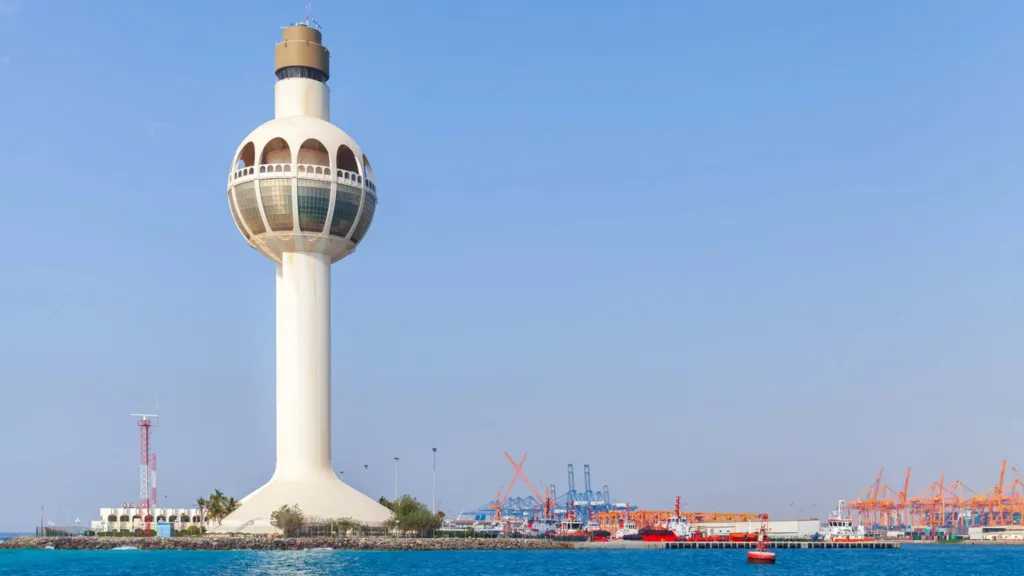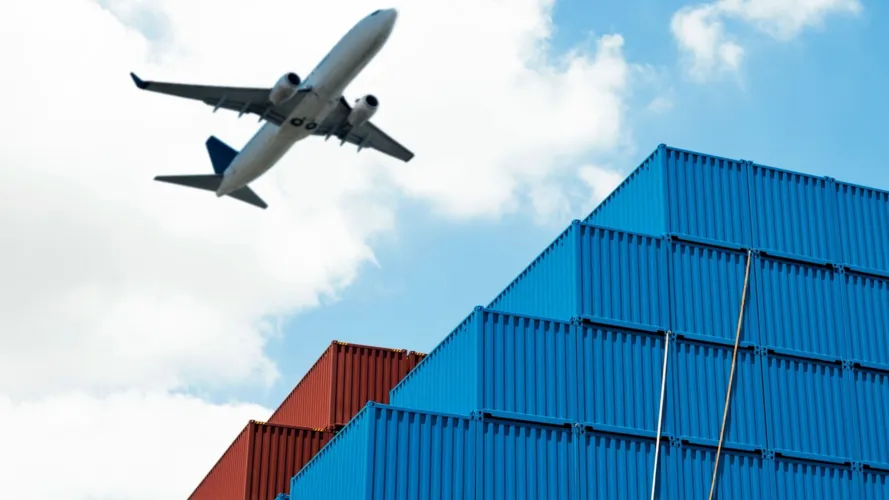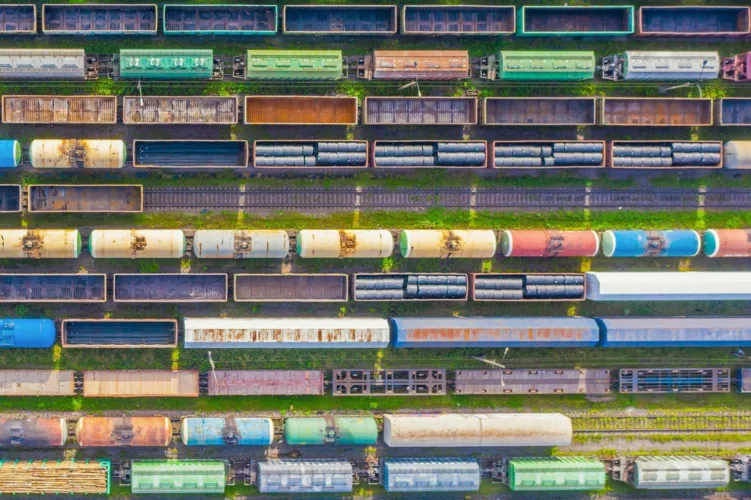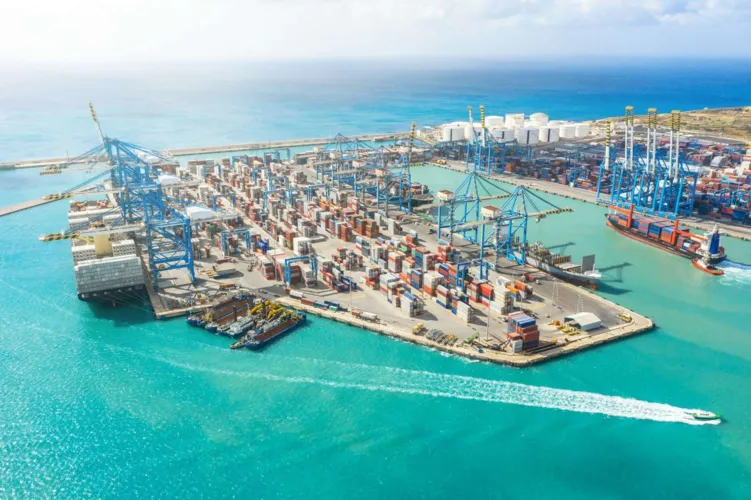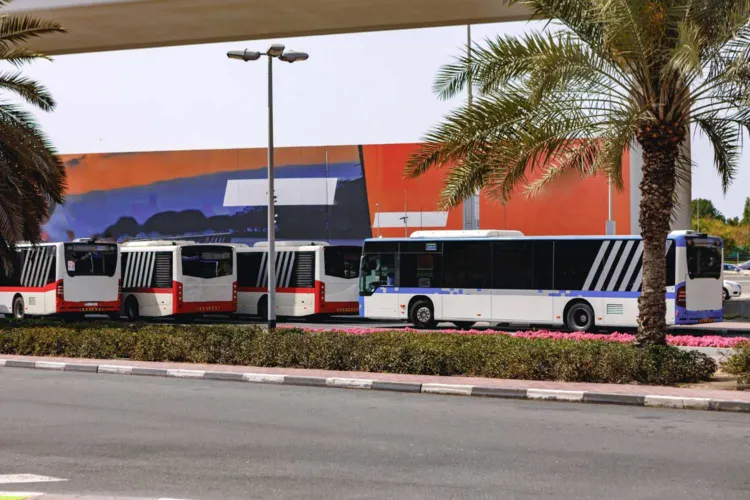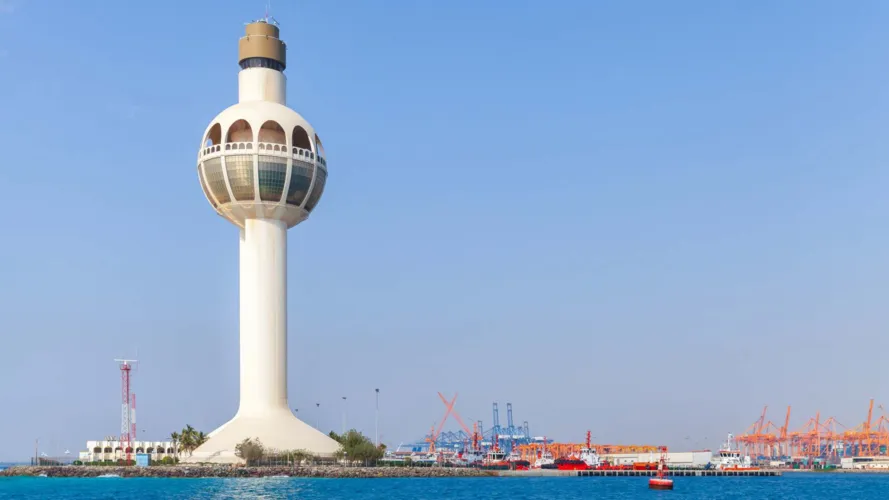Logistics Modernization: $100 Billion Investment Reshaping the Kingdom
Saudi Vision 2030 is catalyzing over $100 billion in logistics infrastructure. From Jeddah’s expanding ports to NEOM’s smart mobility corridors, Saudi Arabia is building the connective architecture of a diversified economy. The goal: to transform the Kingdom into a global logistics hub by modernizing ports, highways, and integrated zones. With one of the region’s most extensive road networks spanning over 70,000 km, the Saudi Smart Logistics Infrastructure is fast becoming the backbone of cross-sector growth and investment.
The Roads General Authority (RGA) has introduced innovations like roller-compacted concrete for truck lanes and recycled demolition waste in asphalt mixes, enhancing durability and sustainability. These upgrades serve as strategic enablers for high-volume freight movement across industrial corridors.
Tech Adoption: IoT, AI, and Automation Driving Efficiency
Saudi Smart Logistics Infrastructure is increasingly powered by intelligent systems. IoT sensors now monitor cargo conditions in real time, while AI algorithms optimize route planning and warehouse operations. Automation is also gaining ground, with autonomous forklifts and robotic sorting systems deployed in key logistics zones.
The Riyadh Integrated Logistics Zone, located just 8 km from King Khalid International Airport, exemplifies this shift. Designed for high-growth sectors like ICT, aerospace, and pharmaceuticals, it offers pre-built warehouses and build-to-suit units with embedded smart technologies. These systems reduce human error, cut operational costs, and enable predictive maintenance—critical for scaling logistics operations.
Key Logistics Hubs: Riyadh, Jeddah, and NEOM Lead the Charge
Saudi Arabia’s logistics transformation is anchored by three strategic hubs:
- Riyadh Integrated Zone: A flagship smart logistics ecosystem with direct access to air cargo corridors and ICT-ready infrastructure.
- Jeddah Islamic Port: Handles over 65% of the Kingdom’s maritime imports, now undergoing digitization and AI-driven container tracking.
- NEOM Industrial City (Oxagon): Positioned as the world’s largest floating logistics hub, integrating renewable energy and autonomous transport systems.
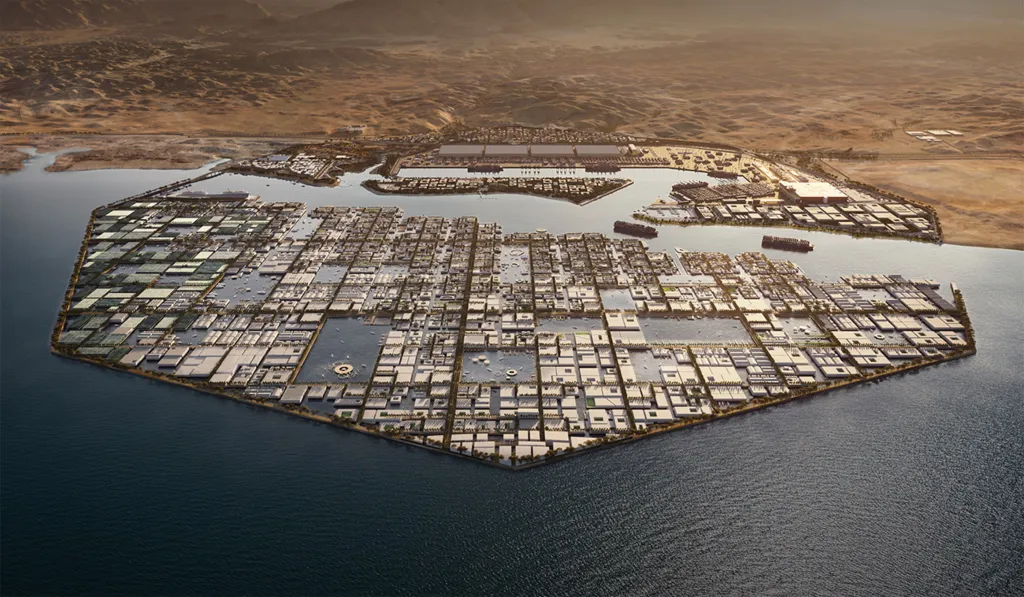
These hubs are not isolated nodes; they form a digitally synchronized network under the Saudi Smart Logistics Infrastructure, enabling seamless multimodal transport across air, sea, and land. The Riyadh Integrated Zone, located just minutes from King Khalid International Airport, features bonded corridors, pre-built smart warehouses, and ICT-ready infrastructure that supports real-time cargo tracking and automated customs clearance. Its proximity to other logistics developments, such as the SAL Logistics Zone and Falcons City, further strengthens Riyadh’s role as a central air-land interchange.
At the Jeddah Islamic Port, which handles over 65% of Saudi Arabia’s maritime imports, AI-driven container tracking and blockchain-based documentation are streamlining port operations. The port’s integration with national rail and highway systems enables efficient inland distribution, reducing turnaround times and boosting throughput.
Meanwhile, NEOM’s Oxagon is redefining maritime logistics with its floating industrial platform, autonomous vehicle corridors, and renewable-powered infrastructure. Designed as a zero-carbon logistics hub, Oxagon incorporates AI-based inventory systems, drone delivery trials, and smart berthing technologies that optimize vessel docking and cargo flow.
Together, these hubs exemplify Saudi Arabia’s shift toward a unified, tech-enabled logistics ecosystem—where infrastructure, automation, and data converge to support high-volume, cross-border trade.
Investment Opportunities: $500 Billion Vision 2030 Pipeline
Saudi Arabia’s logistics sector offers fertile ground for investors. The Public Investment Fund (PIF) and private players are co-developing smart zones, with incentives including 100% foreign ownership, tax exemptions, and fast-track licensing.
Key opportunities include:
- Smart Warehousing: Demand for automated storage solutions is projected to grow 12% annually.
- Green Logistics: Projects like Desert Tech’s solar-powered infrastructure are attracting ESG-focused investors.
- Tech Integration: Partnerships with firms like AECOM are accelerating investor-ready logistics projects across the Kingdom.
With the 2034 FIFA World Cup on the horizon, logistics firms have a unique window to scale operations and support mega-event supply chains.
Challenges and Solutions: Bridging Talent and Tech Gaps
Despite rapid progress, Saudi Arabia faces hurdles in talent development, regulatory harmonization, and tech adoption. The shortage of skilled logistics professionals and fragmented customs procedures can slow down integration.
Solutions include:
- Workforce Upskilling: Government-backed programs are training 10,000+ logistics professionals annually.
- Unified Digital Platforms: The National Industrial Development and Logistics Program (NIDLP) is rolling out centralized tracking and customs clearance systems.
- Sustainability Mandates: New regulations require logistics firms to adopt circular economy practices, such as using recycled materials and reducing emissions.
These measures ensure that the Saudi Smart Logistics Infrastructure remains resilient, scalable, and globally competitive.
Also Read: 76% Growth Positions Saudi Arabia as Logistics Hub

